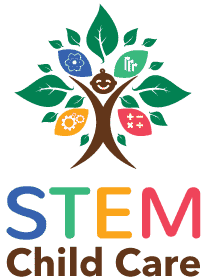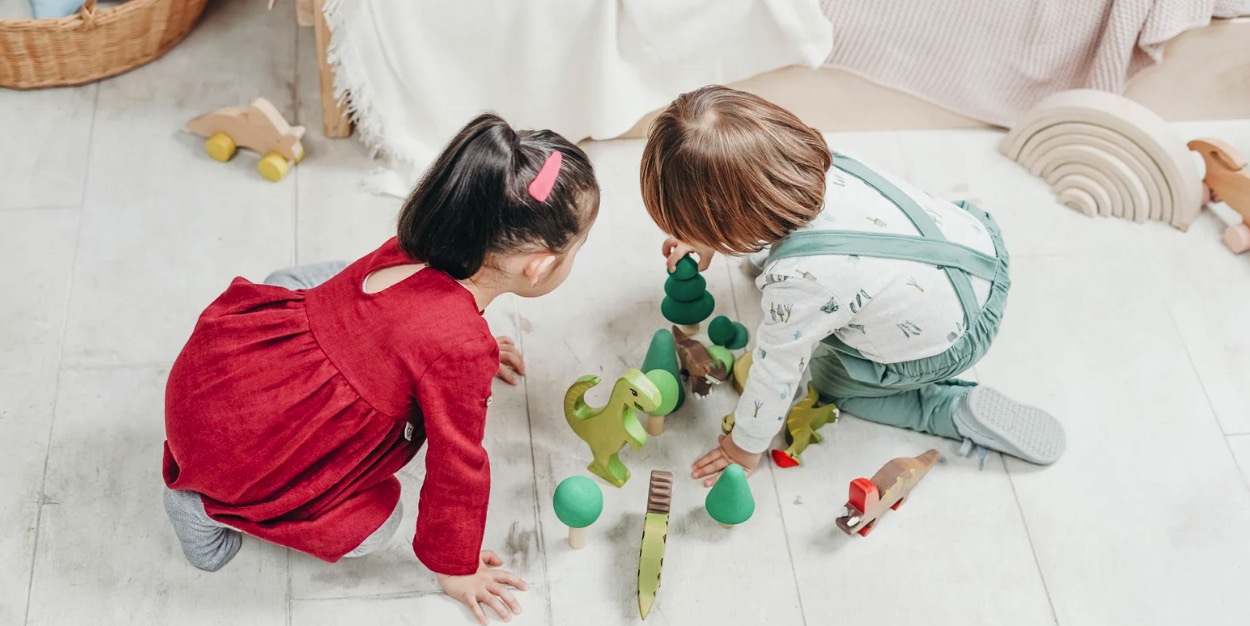Building a Strong STEM Foundation in Toddlers
Building a Strong STEM Foundation in Toddlers
At STEM Childcare, we believe in providing young learners with the best start possible. Introducing STEM (Science, Technology, Engineering, and Mathematics) principles in the toddler years can play a crucial role in shaping their future. By cultivating curiosity, problem-solving skills, and a love for exploration, toddlers are able to lay a strong foundation for later academic and personal success. But how exactly can we nurture STEM in toddlers, and why is it so important?
The Importance of STEM for Toddlers
The toddler years (ages 1-3) are a period of rapid brain development, where children are learning about the world through their senses and experiences. During this stage, young learners are absorbing information and forming the cognitive, social, and emotional skills that they will carry with them throughout their lives. Introducing STEM concepts early on not only supports brain development but also fosters essential skills such as critical thinking, creativity, and adaptability.
STEM learning for toddlers doesn’t mean intense academic lessons or complicated projects. Instead, it’s about embedding the principles of STEM into everyday play and interactions. Simple activities can spark curiosity and inspire little ones to ask questions, experiment, and solve problems—key elements of STEM learning.
Easy Ways to Integrate STEM into Toddlers’ Lives
Here are a few simple yet effective ways to incorporate STEM into your toddler’s daily routine:
1. Explore Nature Together
Nature provides endless opportunities for STEM exploration. Whether it’s observing the changing seasons, exploring a garden, or simply going for a walk, these activities can spark conversations about biology, weather patterns, and the environment. Encourage your toddler to ask questions about what they see, and help them understand how things work. Pointing out the colors, shapes, and sizes of objects in nature can also help develop early math skills.
2. Building with Blocks and Legos
Building toys, such as blocks and Legos, are wonderful tools for introducing engineering and spatial reasoning. These toys teach toddlers about balance, structure, and cause and effect as they stack, arrange, and build. As they play, you can ask them questions like, “What happens if we add another block here?” or “How can we make this tower taller?” These questions promote critical thinking and problem-solving.
3. Play with Simple Machines
Toddlers are naturally curious about how things work, and simple machines like pulleys, levers, and ramps offer hands-on opportunities for STEM learning. You can create simple ramps at home using household items like cardboard and small toys to demonstrate concepts such as speed, force, and motion. Exploring the mechanics of toys like wind-up cars or toy cranes can introduce basic principles of engineering and physics.
4. Cooking and Baking
Believe it or not, cooking is a fantastic way to introduce math and science concepts. Toddlers can practice counting, measuring, and observing chemical reactions, such as when baking soda reacts with vinegar. These activities not only reinforce STEM skills but also provide opportunities for fine motor development and social interaction. Let your toddler help you mix, measure, and pour, making learning fun and hands-on.
5. Music and Patterns
Music is full of math and rhythm, making it an excellent tool for STEM learning. Singing songs, clapping hands, or playing simple instruments can help toddlers recognize patterns, timing, and sequencing—all foundational skills for future learning in math and science. Encourage your child to explore different sounds and instruments, discussing how they make noise and how the sound changes with speed or force.
6. Interactive Learning with Technology
Technology, when used appropriately, can be a great tool for STEM learning. There are many educational apps and interactive toys designed specifically for toddlers that introduce basic concepts of math, science, and problem-solving. You can also use devices like tablets to show videos of animals, outer space, or building projects that fascinate your child, helping them connect learning to the real world.
The Benefits of Early STEM Education
Introducing STEM concepts at an early age can have a profound impact on a child’s cognitive development. Some of the key benefits include:
- Critical Thinking and Problem Solving: By engaging in STEM activities, toddlers learn to think critically, ask questions, and solve problems. This mindset will serve them well throughout their educational journey and in life.
- Increased Curiosity: STEM encourages children to explore their environment, ask questions, and seek answers, leading to a lifelong love of learning and discovery.
- Early Math and Science Skills: Simple activities like counting, sorting, and recognizing patterns help develop foundational math and science skills, providing a solid base for more complex learning later on.
- Improved Communication Skills: As toddlers engage in STEM activities, they are encouraged to describe what they are doing and explain their thought process, enhancing their vocabulary and language skills.
- Encouraging Gender-Neutral Learning: STEM education is for everyone. By introducing young children to STEM at an early age, we help eliminate stereotypes and give all children—regardless of gender—the chance to explore and excel in these critical fields.
STEM Childcare: The Foundation for Lifelong Learning
At STEM Childcare, we are committed to creating an environment where toddlers can explore, experiment, and grow through engaging STEM activities. Our curriculum is designed to foster curiosity, creativity, and critical thinking, while encouraging children to think like scientists, engineers, and mathematicians. From interactive playtime to real-world explorations, we provide a hands-on learning experience that sets the foundation for lifelong learning.
By embracing STEM in the toddler years, we ensure that your child is not just prepared for kindergarten but equipped with the tools to succeed in an ever-changing world. Whether through simple play or more structured activities, we believe that every toddler deserves a chance to explore the exciting world of STEM and unlock their full potential.




